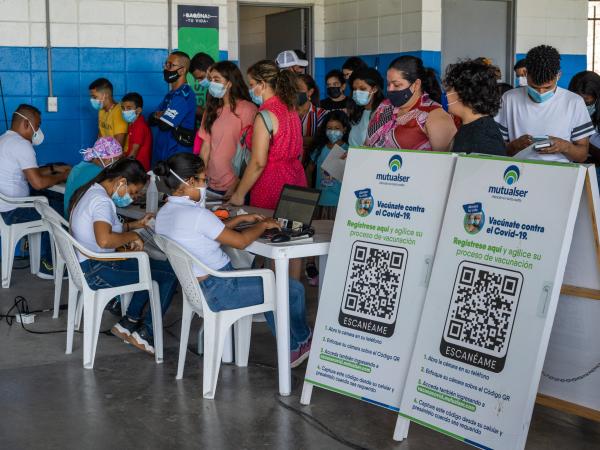Should vaccination be mandatory for employees? The expert responds | Finance | Economie

About 6 thousand companies in Colombia have purchased vaccines to immunize more than 1.2 million workers and with it they will be able to accelerate the productive and economic revitalization of the business sector, which has been severely affected by the Covid-19 epidemic. The purchase of these biopharmaceuticals by the business sector is another example of collective conscience, collaborative work and generous leadership.
Without a doubt, for the productive sector, regardless of geography, nature of business and company size, this has been one of the biggest leadership and management challenges they have had to face in response to the situation caused by the pandemic. ..
(See: What’s the next step for the national coronavirus vaccination plan?).
This procurement of vaccines is intended to support the development of the vaccination plan of the national government of Colombia: Currently, vaccination is progressing satisfactorily, with a high percentage of Colombians vaccinated so far with the two doses, and it is seen how they gradually go to vaccination with the first dose, due to the fact that the age margin for obtaining the biological vaccine has been extended.
When a new natural light began to appear, new challenges appeared, such as: the new variables of the virus, which must be confronted and circumvented to continue moving decisively towards revitalizing the state, without losing sight of what is more. important from protecting the lives of Colombians; The problem is no longer the number of vaccines available to the population, But in case some people are hesitant and/or not interested in vaccination, which, of course, affects the immunization plans that companies have. This bump was not coming; On the contrary, it was trusted that all Colombians yearned for a vaccination scheme as the best option for achieving the long-awaited herd immunity.
This week, human talent managers from the country’s largest companies discussed actions and attitudes to take regarding the vaccination of their collaborators. The starting point in the discussion was the impossibility of compelling employees to be vaccinated, or requiring a vaccination regimen in order to link or unlink a collaborator, as this would be completely contrary to the provisions of the Ministry of Labor and Employment. That would lead to penalties and lawsuits for companies.
(See: A man was vaccinated 7 times in Cali, with no reaction or punishment.)
Given this first assumptionThe discussion revolved around the need to set up motivational and informational campaigns for employees about the benefits of vaccinations. Both for individual health and collective well-being, and not only within companies, but also for various interest groups. Creativity was rapid and innovative formulas were shared to convince those still hesitant about receiving the vaccine.
Likewise, many agreed that they will establish hybrid business models so that returns are voluntary and in other cases, they will impose measures so that those who do not wish to be vaccinated and return to face to face have restrictions on the use of group spaces such as gyms or showers, etc., in order to keep others safe.
(See: They analyze the potential link between Moderna vaccine and heart risk.)
At Acrip, we remain committed to escorting organizations so that a gradual return to offices occurs in accordance with the highest biosafety standards. We will continue to seek new ideas, review practices, and raise awareness in society at large until we all join in this transitional period in which we find ourselves.
However, the mandatory nature of immunization in the productive sector is something that should not be completely ruled out by the national government, especially if infections continue to increase despite advances in immunization and appropriate indicators for the generation of herd immunity have not been achieved.
(See: Colombia to administer third dose of Covid vaccine.)
In companies it is very important to keep fighting To convince people who do not want to be vaccinated to be aware of the risks posed by virus variants and thus prevent infection and mortality from increasing.
In the United States, for example, because its regulatory framework allows it, there are already companies and sectors that require their employees to be vaccinated. To be able to continue working and/or attend the office in person, such as the recent notable cases of giants Google, Facebook and CNN. This is in order to mitigate the wave of new infections in a country that has more than 50% of its population immunized with the full scheme, but with an important segment reluctant to use the biological system.
(See: Undocumented and undocumented immigrants can be vaccinated in Colombia.)
The discussion is open and at the moment there is nothing left but to continue to inform and motivate people to get vaccinated as quickly as possible and to continue to look for other schemes, such as social sanctions or restriction of attendance in public places, as it happens In France, to achieve a sufficient result in the national immunization that begins with allowing a return to normal life.
Gladys Vega
President of the Colombian Federation of Human Management (ACRIP).

“Future teen idol. Hardcore twitter trailblazer. Infuriatingly humble travel evangelist.”










